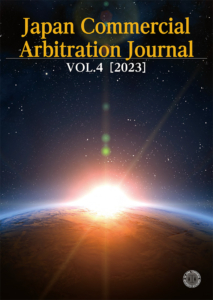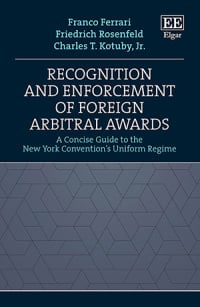Views
Regulating International Organisations: What Role for Private International Law?
Written by Dr Rishi Gulati, LSE Fellow in Law, London School of Economics; Barrister, Victorian Bar, Australia
The regulation of public international organisations (IOs) has been brought into sharp focus following the landmark US Supreme Court ruling in Jam v International Finance Corporation586 US (2019) (Jam). Jam is remarkable because the virtually absolute immunities enjoyed by some important IOs have now been limited in the US (where several IOs are based), giving some hope that access to justice for the victims of institutional action may finally become a reality. Jam has no doubt reinvigorated the debate about the regulation of IOs. This post calls for private international law to play its part in that broader debate. After briefly setting out the decision in Jam, a call for a greater role for private international law in the governance of IOs is made. Read more
Viewing the “Arrangement Concerning Mutual Assistance in Court-ordered Interim Measures in Aid of Arbitral Proceedings by the Courts of the Mainland and of the Hong Kong Special Administrative Region” as a Window onto the New Legal Hubs
Written by Matthew S. Erie, Associate Professor of Modern Chinese Studies and Fellow at St. Cross College, University of Oxford
On April 2, 2019, the Government of the Hong Kong Special Administrative Region (“HKSAR”) and the Supreme People’s Court of the People’s Republic of China” (“Supreme People’s Court”) signed an Arrangement Concerning Mutual Assistance in Court-ordered Interim Measures in Aid of Arbitral Proceedings by the Courts of the Mainland and of the HKSAR (hereinafter, “the Arrangement Concerning Mutual Assistance,” see English translation here). This is a momentous development in the growth of international commercial arbitration in both mainland China (also, the “PRC”) and Hong Kong as it is the first time that such a mechanism has been put in place to allow Chinese courts to render interim relief to support arbitrations seated outside of the PRC. Read more
Interpreting Forum Selection Clauses
Written by John Coyle, the Reef C. Ivey II Term Professor of Law, Associate Professor of Law at the University of North Carolina School of Law
Last week, I wrote about the interpretive rules that U.S. courts use to construe ambiguous choice-of-law clauses. Choice-of-law clauses are not, however, the only means by which contracting parties may exercise their autonomy under the rules of private international law. Parties may also select via contract the forum in which their disputes will be resolved. In the United States, these contractual provisions are generally known as forum selection clauses. Elsewhere in the world, such provisions are generally known as choice-of-court clauses. Since this post is largely focused on U.S. practice, I utilize the former term. Read more
News
New Volume of the Japan Commercial Arbitration Journal
The Japan Commercial Arbitration Association (JCAA), one of the oldest international arbitration institutions in the world, founded in 1950, has started to publish its annual journal on commercial arbitration – “Japan Commercial Arbitration Journal” – entirely in English. The Journal’s Volume 4, which has been published recently, features the following articles:

Miriam Rose Ivan L. Pereira
Combining Interactive Arbitration with Mediation: A Hybrid Solution under the Interactive Arbitration Rules
Masaru Suzuki, Shinya Sakuragi
The Use of Technology in the International Commercial Arbitration and the Consideration of Rulemaking
Kazuhisa Fujita
Current Status of International Arbitration from the Perspective of Corporate Law and Japan as the Place of Arbitration
Dai Yokomizo
International Commercial Arbitration and Public Interests: Focusing on the Treatment of Overriding Mandatory Rules
Yuji Yasunaga
Extending the Application of an Arbitration Agreement Involving a Corporation to Include its Representative
Kazuhiro Kobayashi
Scope, Amount and Sharing of Arbitration Expenses and Court Costs in Japan
Leon Ryan, Shunsuke Domon
Disputes in India ? Lessons from Mittal v Westbridge
Junya Naito, Motomu Wake
Potential for a New Arb-Med in Japan
Yoshihiro (Yoshi) Takatori
Arbitrator Training and Assessment ? How to Increase and Strengthen Resource of Arbitrators and ADR Practitioners
Shuji Yanase
On Dual Conciliation by Two Conciliators
Takeshi Ueda
Discussions and Challenges in Promoting Online Dispute Resolution
Shinji Kusakabe
Civil Litigation after the Introduction of IT, as Suggested by Scheduled Proceedings in Commercial Arbitration
All volumes can also be freely consulted and downloaded here.
Transatlantic Dialogue in Private International Law: family and personal status, 12-13 October, Coimbra
The Institute of Legal Research of the University of Coimbra is organising an event in their series of Transatlantic Dialogues in Private International law. On 12 and 13 October the topic is Family and Personal Status on the Move.
The programme includes the main developments in family law and personal status, name, multiple parenthood, gender and polyamorous relationships. Besides, there is a session for young researchers, for whom the organisers opened a call for papers. A 300-word abstract should be submitted by mail to dulcel@fd.uc.pt and paulavit@fd.uc.pt. by 20 September.
See the Call for papers booklet
The organisers are Dulce Lopez, Guillermo Palao Moreno, Nicolas Nord and Paula Távora Vítor.
The event is hybrid, but registration is required.
Review of: Recognition and Enforcement of Foreign Arbitral Awards (Ferrari, Rosenfeld, & Kotuby Jr.)
Franco Ferrari, Friedrich Rosenfeld, & Charles T. Kotuby Jr., Recognition and Enforcement of Foreign Arbitral Awards: A Concise Guide to the New York Convention’s Uniform Regime
Cheltenham, Edward Elgar, 2023
178 pp. Hardback : £72 eBook: £20



